|
by Anthony R. Green Once again, the United States is embroiled in another moment where citizens are protesting (in various ways) against the extremely inhumane treatment of Black people, particularly by the police. The three names that have recently garnered national and international attention are Ahmaud Arbery (25 years old), Breonna Taylor (26 years old), and George Floyd (46 years old). The sadder reality is that during this same period, in Tallahassee alone, police officers also fatally shot Wilbon Woodard (69 years old), Mychael Johnson (31 years old), and Tony McDade (38 years old). Tony was murdered two days after Floyd, and - while his death has received some noteworthy attention - his demise has been eclipsed by the Floyd protests. In all truth though, while the particular unfolding of Floyd's murder resulted in a situation upon which the current protests could unfold (analogous to Michael Brown's murder), these protests are the result of an eruption of simmering feelings about Black death, institutional racism, and injustice, especially in the US. The simmering feelings have now turned into a full on boil, and that boil has burst a lid. The feelings are now flowing like lava, and this emotional lava is flowing strong ... as it should be. History has constantly construed the narrative of Black people, not just in the United States, to skew towards negative or non-existent. Consider classical music's continued practice of ignoring Vicente Lusitano (an Afro-Portuguese renaissance composer), Ignatius Sancho (born into slavery, eventually becoming a composer and the first Black Briton to vote), Chevalier de Saint-Georges (born in Guadeloupe, Mozart stole a theme from him for one of his works), William Grant Still (the "dean of Black composers", ground-breaking musician), and so many others in their programming, their pedagogy, their analyses, and their lists of who is a "great" composer or an "old master". This ignorance and silencing directly corresponds to deplorable narrative that seems to overwhelm Black identity today. Everyone has a moral responsibility to change this narrative, because it is false, destructive, and fatal, as evinced by racially-motivated deaths, institutional racism, societal indifference, Black silencing, and so many other factors that have existed for far too long. Nevertheless, Black people will still persist. We will still create, have a significant influence on society, history, technology, science, medicine, architecture, design, textiles, urban planning, childcare, visual art, literature, creative practices, empathy, and everything that exists in this world. What can we do now, though? We can rectify our mistaught history and change the Black narrative. We can work to correct the current injustice that permeates public and private spaces. But we mustn't let the world ever forget how it has mistreated its Black and brown people. With that, please listen and grow from this powerful piece by Courtney Bryan: Yet Unheard.
0 Comments
by Liz Gre Step 1. Cool your jets. Actual title: How to make it through this period without burning out. 1: Explore new ways to make sound. Remember when you didn’t write for deadlines and you just played with your instruments or tools? Wasn’t that great!? I find most inspiration for melodies, themes, and sounds from the natural, external environment. Being locked inside has been a detriment to my wells of inspiration until I realized the world that I had been ignoring in my home. Consider that being in your home has given you new eyes and new ears! What can you do with the sounds that you may have overlooked? Like the sound of raw honey riding a spoon on its escape from the jar or the sound of your nine-year-old’s markers hopefully not on the wall? 2. Challenge yourself with childhood joy When was the last time you giggled? Or doubled over laughing? I believe that the creative’s Gift is one of JOY - that of a child. We are able to seize the purity of a moment. Remember the things that you did as a child that brought you joy. 3. Take it easy on yourself
You don’t have to tick off a to-do list every day. Shifting from one way of life to another is jarring! And placing an expectation of productivity on yourself is not necessary. Easier said than done, I do realize. The moment I rest, my mind buzzes up with anxiety over the things I “should” be doing. So it is a constant decision to release expectation from myself. 4. Reconnect with your “why”. Now that we are slowing down, it’s a great time to take a moment to reflect on why really you’re pursuing your work. You were divinely engineered to do what you are doing. No one else can do it like you can. Others may try, but let’s be real - you’re one in a million, baby. Take a moment to ask yourself and be radically honest about why you wake up every day and chase after this dream. 5. Bonus: Check out COOS's online offerings Not only does COOS post a weekly BIBA Blog here, but COOS has created virtual programming that includes 18 world premieres of miniatures by Black composers, Kids Korner storytime readings, and a Poetry Nightcap Series! Find out more at castleskins.org ... naturally! ----- Liz Gre is a composer and vocalist writing strange, experimental, ethnographic compositions with Black Women for Black Women. In 2017, she performed the title role in Mother King, an opera about Alberta Williams King (the mother of Dr. Martin Luther King, Jr.). She was a 2019 Inside/Outisde Fellow at The Union for Contemporary Art (Omaha, NE). Currently located in London, UK, she is working towards her MPhil/PhD in Music at City University of London. Social Media : IG/Twitter - @lizgrelizgre by Ashleigh Gordon On this day in 2018, Boston Conservatory hosted New Music Gathering: a three-day meet-mingle, listen-and-be-heard convening of friends, both old and those you didn’t know you’d make. The fourth gathering of its kind, it was a platform to share honestly, connect, be inspired, and amplify a long overdue discussion: diversity in new music (be sure to catch Helga Davis’ opening keynote on the topic here if you missed it). From left to right: Melanie Zeck (photo by Liz Boros Kazai), Ashleigh Gordon (photo by www.RobertTorresPhotography.com, and Lucy Caplan
It was at this gathering when I had the chance to challenge the fundamental concept of what “new music” is. With fellow provocateurs Melanie Zeck (Reference Librarian at the American Folklife Center of the Library of Conference, and former Research Fellow at the Center for Black Music Research in Chicago) and Lucy Caplan (Lecturer at Harvard University with particular interests in African American music, opera and cultural criticism), we argued that the music of Black composers is often new to our ears regardless of when it was written. It’s “new music” in the sense that it’s unheard and unknown by most audiences, long since left from main concert stages, and failed to cross people’s minds as even being a possible creation in the first place. Highlighting archival research, scholarship, and performance application, we challenged the notion of a fixed music canon, discussed the ramifications that structural racism bears on legacy and accessibility, and advocated for how we can use resources already in place to dismantle a cycle of neglect. We unpacked the ways our very words exacerbate the issue: how a composer like Florence Price could be “rediscovered” multiple times despite the fact that scholarship and performance of her work never ceased in some circles; or how others still could be “forgotten” or “lost” as though misplaced like a set of keys without regard to the intentional and calculated efforts that enabled their “disappearance.” New Music Gathering provided us with the opportunity to openly discuss such topics with a community willing and eager to listen. While this is certainly a time when convening and gatherings of community in public spaces are prohibited, this is still the time to engage in dialogue around representation, accessibility, visibility, and diversity. In fact, this is arguably a perfect time to quite literally build a new and improved cultural landscape with equity at its center. With the ongoing ICE New Music Virtual Town Hall Meetings, New Music USA and American Composer Forum conversations, and the June 15-30th virtual New Music Gathering, there are ample opportunities with captive movers and shakers in the field to engage, probe, prod, challenge, and co-create such a future. When new music gathers with diversity and equity at its center, we all win. by Anthony R. Green Happy Mother's Day from Castle of our Skins! In 2015, COOS received a Travel to the Collections grant from the Center for Black Music Research (CBMR) in Chicago. While the center itself has dramatically changed, the time that COOS spent doing research there will always remain invaluable. One focus that we had at that time was researching music and contributions by Black women composers. The world of classical music has historically mistreated its women, and efforts to bring justice to female composers of the past and the present are quite often met with misogynistic or otherwise awkward responses, from both men and women. Many of these responses fail to acknowledge the many challenges that women have historically faced from male-dominated societies, who often define men as the only gender that can contribute to society in a grand, important way. Among these challenges include gender role stereotypes, expectations, and also motherhood. As rewarding as motherhood is, imagine how difficult it was for female composers to balance being a creative as well as being a mother, among other responsibilities? Through COOS's CBMR research, we came across the wonderful music and life of Lettie Beckon Alston (1953 - 2014). Not only was Mrs. Alston a composer, a pianist, and the first Black composer (of any gender) to receive a doctorate degree from the University of Michigan in 1983, but she was also a mother to her son Darnell, and a mother figure to many students. As a student herself, she studied with powerhouse composers such as William Bolcom and Leslie Bassett, among others. Her composition practice also included working with digital and electronic processes, and she studied electronic composition with George Wilson and Eugene Kurzt. She used these lessons and her wealth of experience to become a beloved and respected pedagogue at Wayne State University, Oakland University, and Eastern Michigan University. Yet her quiet presence has left her as a respected composer within the circle of musicians and enthusiasts who are familiar with her work, but not so popular outside of this circle. This is proven by many online sources (including Wikipedia) that still do not have her death year registered. Fortunately, there are current efforts to increase the number of performances of Mrs. Alston's music, including from the Hidden Voices: Piano Music by Black Women Composers project at the University of Colorado at Boulder (CU Boulder). This project continues the work of the beloved pianist and scholar Helen Walker-Hill (mother to violinist and composer Gregory Walker, who is the son of the late Pulitzer prize winner George Walker). And for those who are keen to hear her music, simple YouTube and Google searches will yield plenty of links, where you can enter her unique musical world. With that, a wonderful place to start is with Karen Walwyn's fantastic interpretation of Alston's Well Marked, the first rhapsody from her Three Rhapsodies for Piano. Enjoy and Happy Mother's Day!! by Sakari Dixon Today's post is an interview with Kori Coleman, the founder and executive director of the Chicago organization D-Composed. Through unique and often cross-disciplinary chamber music experiences, D-Composed engages audiences with the works of Black composers and musicians in both popular and classical genres. photo by Orel Chollette BIBA : In your bio, you state that D-Composed was founded out of a desire to create more fine art and luxury experiences that are tailored to the Black community. Can you tell us a bit more about how D-Composed began? How did you and Danielle Taylor meet? KC : Prior to D-Composed, I ran a luxury lifestyle website called The Chicagolite. It highlighted luxury events and activities throughout the Chicagoland area. I went to fashion shows, restaurant openings, art exhibit openings. I was very much like a part-time high society girl (LOL). My goal with the site was to show my audience that you don’t have to wait until you are wealthy to enjoy the finer things in life. Plus, by being very visible I wanted the Black community to know that the spaces I was entering (although very white) weren’t off limits, and we should make our presence known wherever we want to go. I had people tell me that they were inspired to even explore the North Side of the city by seeing me go to events. However, as I attended more high-profile events, I noticed that not too many experiences catered to the Black experience in the way that I hoped to see it represented one day. Eventually I got tired just being an attendee, and I knew that eventually I wanted to create something that made a difference and reflected the change that I wanted to see. D-Composed came about because one day I went to an event that highlighted Black composers, and it was like this light bulb went off. Throughout my entire life, the thought of Black composers never crossed my mind. I played the violin throughout much of my youth and not once was I introduced to a Black composer. It took me becoming an adult and exploring the arts scene for that world to open up to me. Following the event, I started researching Black composer events and I couldn’t find any events outside of Black history month or MLK Day. Plus, finding Black ensembles was even harder. I had been planning events prior to D-Composed, so I felt like I had what it took to create the series. We just needed to find someone who could lead the music. That same night of the event, I decided that I wanted to pursue creating my own series, so I started researching Black musicians in Chicago. I came across our now Artistic Director Danielle Taylor, and I saw that she had already been researching Black composers ... and the rest is history! Danielle was instrumental in identifying our core quartet so the right people came together at the right time. It was by fate that we both happened to share a similar vision to really redefine the classical music world and make our own rules and playbook along the way. photo by Ally Almore BIBA : What are some of the most unexpected ways in which your background in experiential marketing has influenced the way that you curate programs for D-Composed? KC : Throughout each phase of my career I’ve been able to take so many key learnings from experiential marketing. Ultimately, when working in agencies, clients come to you because they want you to create the most compelling content or activations to promote their brand. We don’t approach creativity in a typical way with our clients, so I carry that same thought process with D-Composed. When I first started my career as a strategist, I learned about creative concept development. That’s when I started to challenge my creativity to think of programs as concepts with their own unique narrative and story. As a strategist, it’s important to be well versed in all aspects of culture and society at large, so I always have my eye on trends and general inspiration. And now that D-Composed is growing and developing as a business, I’m able to apply my strategic learnings in much more intentional ways, like having a pointed strategic vision for the company and just overall creating with more specificity and intention. I like to think of myself as the person who makes sense out of creativity. Being a strategist allows me to think through every single detail of the business, and I truly believe we aren’t creating just for creativity's sake. Every action has a purpose and message that we wish to communicate. BIBA : D-Compressed, your "music yoga experience", has become one of your most popular events. Can you tell us how that collaboration came about? What do you most look forward to in the next iteration of D-Compressed? KC : I love blending genres and mediums together, so I thought why not combine yoga & chamber music? What’s interesting is when D-Composed first started, I mentioned to Danielle that the next phase would be yoga & chamber music, but let’s do a more traditional concert first. The reason yoga & chamber music makes sense as it relates to our vision is because both classical music and the profession of yoga have a serious diversity issue, especially as it relates to Black people. By bringing these two forces together, we’re making and creating our own space in worlds that weren’t the most receptive to us. Plus, both classical and yoga have their own set of preconceived rules with how you are supposed to behave in those spaces, and we just wanted to dismantle all of that. What I love so much about D-Compressed is how much fun we have with the music. The set-list is primarily contemporary pop culture songs, and Danielle consistently kills it with each of her arrangements. With D-Compressed, you can hear artists like Beyoncé, Janelle Monae, Tyler, The Creator, Juvenile, Sisqo. And all the songs are selected to compliment the actual flow of a yoga class. It’s meant to just be a fun experience where our attendees can be themselves. Also, twerking on the mats is a thing that happens and is encouraged. We’ve even had people stop what they are doing just because they are feeling the music, and that’s OK. We play whatever we want to play with D-Compressed. I’m just excited to see musically what’s in store. We might do some special themed set-lists in the future, but for now it’s a hodgepodge of just really dope music. BIBA : Part of your vision includes reaching out to the youth through programs such as family concerts (which feature a lovely coloring book!) and your nonprofit D-Composed Gives. What is some of the most inspirational feedback that you have heard from youth attendees or their parents? KC : There’s not a single show that happens where a parent isn’t asking for more or wondering when the next event is. I think that can be the challenge for us because D-Composed is small, but mighty; but there’s always this incredible desire for the work we’re doing. Sometimes it’s hard to keep up with the demand. Usually parents express so much gratitude that D-Composed even exists. One parent told Danielle that he was considering having his son play an instrument even though they were only pushing him towards sports! By seeing that concert, that opened that parent’s eyes to a new world of possibilities that weren’t previously considered. That type of feedback is powerful, and it further exemplifies why we do what we do. This is why we make a point to feature all Black musicians so those kids can see themselves in anyone on that stage. Also, there has yet to be a concert where someone hasn’t walked up to us crying. It’s an overwhelming experience for a lot of people, so we acknowledge the huge responsibility we have to create a space with so much intention and thoughtfulness behind it. BIBA : What advice would you give to up-and-coming organizations who share a similar mission as D-Composed? KC : The biggest advice I can give is to stay true to your vision. You may get a bit of pushback, there may be some naysayers, but staying true to yourself is well worth the risk. With D-Composed, I’m proud to say that we create exactly what we want, and I’m incredibly proud of everything that’s been put out there. We will not compromise our vision, and if that means not getting all the support, that’s OK. Regardless of what you do, I would say stay true to your vision and make sure at the end of the day you are creating something that you are genuinely proud of. To learn more about D-composed, please visit their website at: https://www.dcomposed.com . You can also follow them on Instagram @dcomposedchicago, and watch past and upcoming videos of their artistry on their YouTube channel! In the future, stay tuned to find out how you can support D-composed in their journey to play at the prestigious festival, South by Southwest (SxSW)!! Due to the coronavirus pandemic, SxSW was cancelled this year.
|
Details
Writings, musings, photos, links, and videos about Black Artistry of ALL varieties!
Feel free to drop a comment or suggestion for posts! Archives
May 2024
|
Member Login
Black concert series and educational programs in Boston and beyond
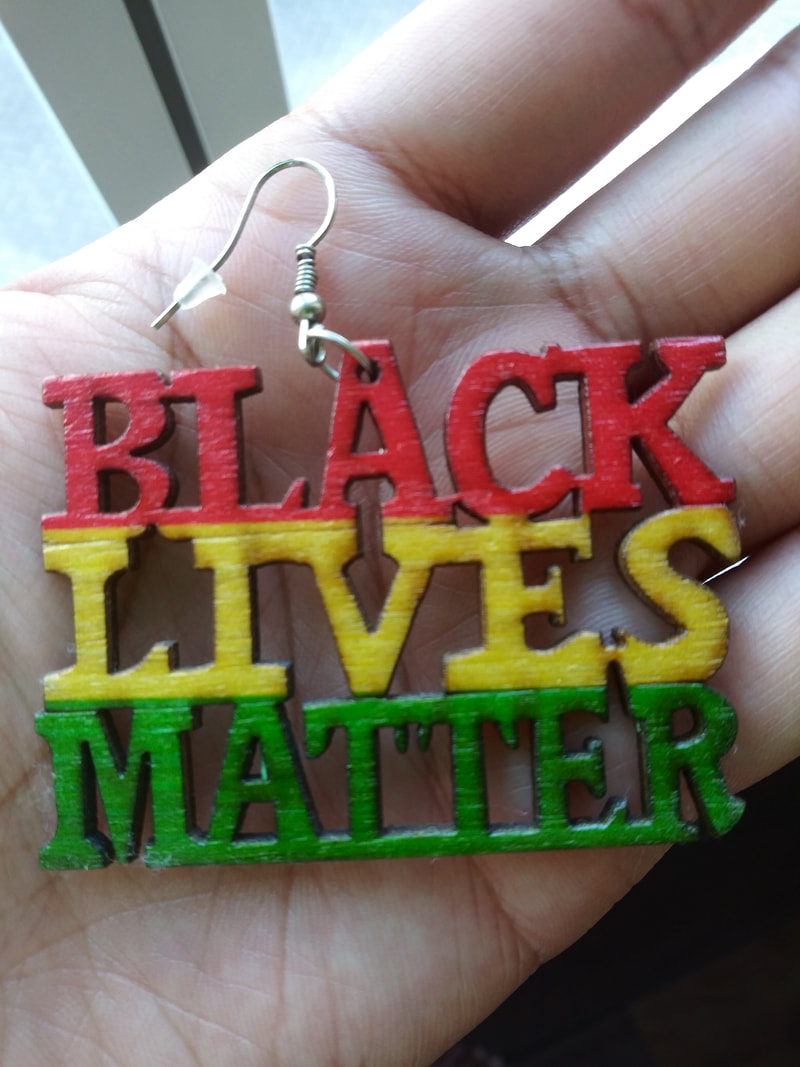
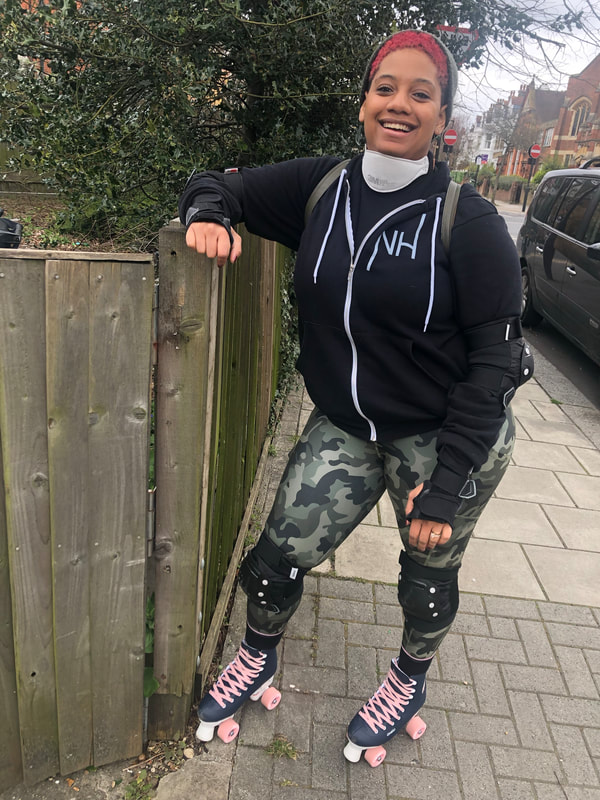

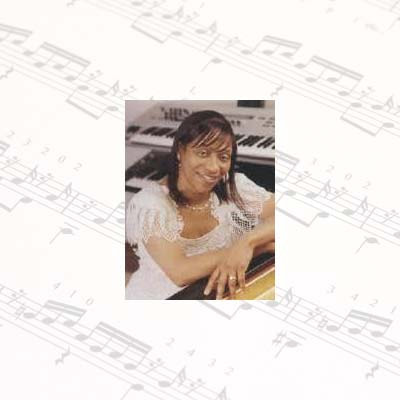
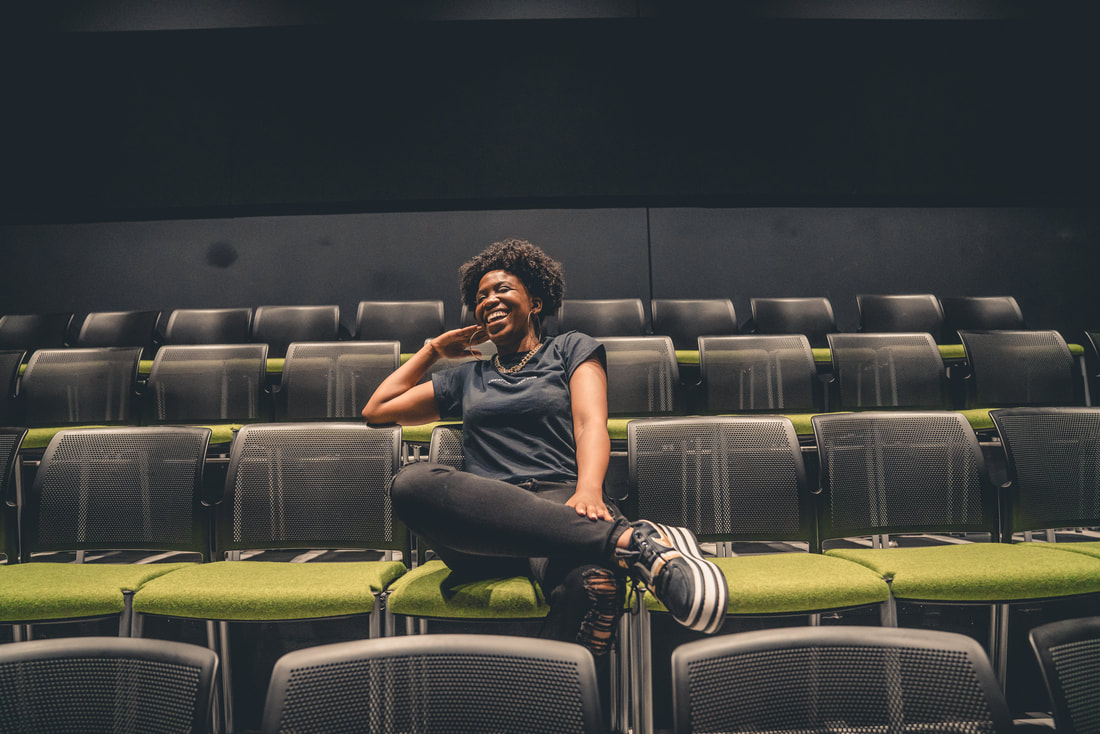
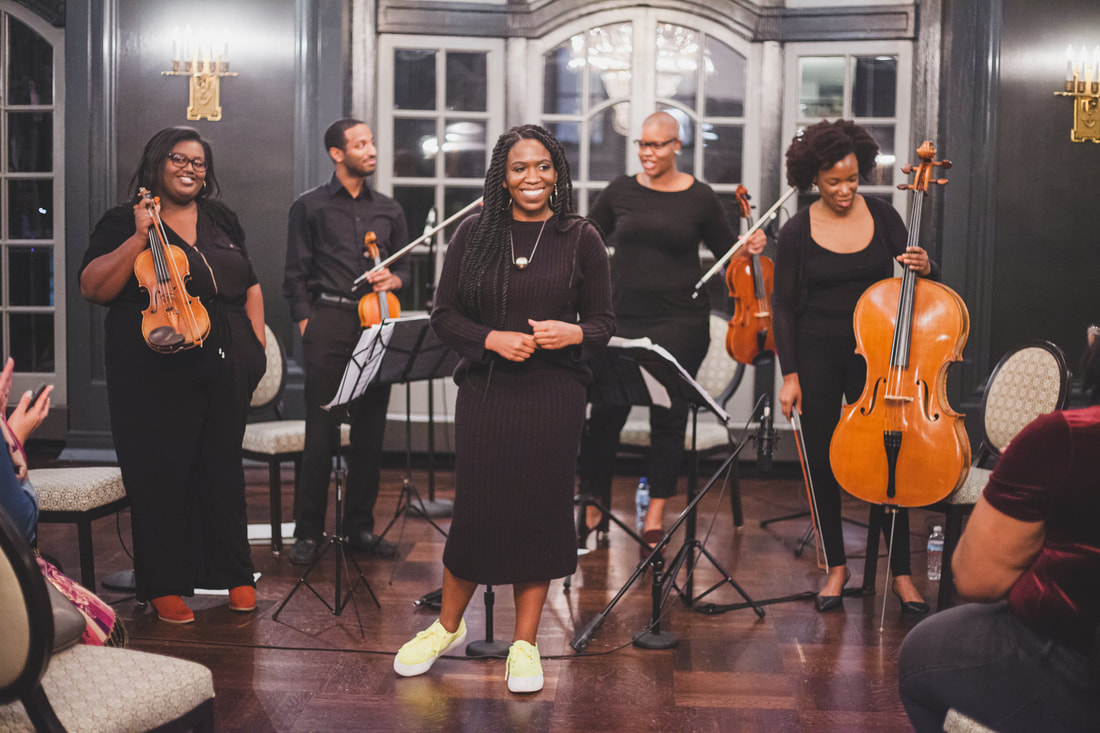

 RSS Feed
RSS Feed










